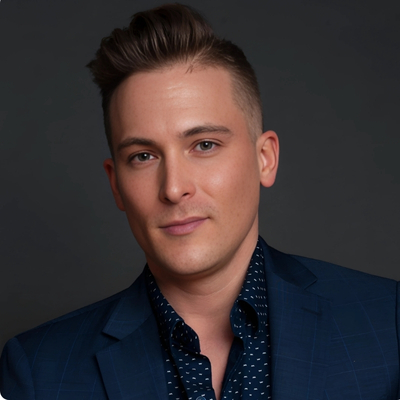



Rainbow Connections: Practice Guidelines for LGBTGEQIAP+ Affirming Counseling
Rainbow Connections: Practice Guidelines for LGBTGEQIAP+ Affirming Counseling
Pricing
Information
Date & Time
-
-
Learning Objectives
Participants will be able to:
-
Describe 3 key aspects of LGBTGEQIAP+ affirming counseling.
-
Analyze the ways in which their current clinical practice is LGBTGEQIAP+ affirming.
-
Identify 3 strategies to adapt their clinical practice to be more LGBTGEQIAP+ affirming.
Educational Goal
The educational goal of this workshop is to provide counselors and other mental health professionals with a research-based adaptive practice framework for affirming counseling that promotes resilience and growth for LGBTGEQIAP+ clients.
Description
Stigma-related experiences in counseling undermine interventions and client safety; hence, counselors need to provide ethical, affirming care to LGBTGEQIAP+ clients by adapting treatment approaches to support the identities of their clients. We will review a set of adaptive, growth-oriented strategies for counselors to conduct LGBTGEQIAP+ affirming clinical practice. The adaptive practices utilize the most up-to-date research, community feedback from providers, and input from LGBTGEQIAP+ individuals to modify mental health interventions and enhance responsiveness for SAIGE clients.
Target Audience
- Addiction Professional
- Counselor
- Marriage & Family Therapist
- Psychologist
- Social Worker
Presenters

Dr. Amber Pope is an Assistant Professor in the Counselor Education program at the College of William & Mary and coordinates the Couples, Marriage, and Family concentration. She is a Licensed Professional Counselor in Virginia, a Licensed Mental Health Counselor in Florida, and an approved supervisor for counselors seeking LPC and LMFT licensure in both states. Dr. Pope specializes in the areas of couples counseling, sexuality concerns, gender and sexuality development, LGBTQ-affirmative counseling, and culturally responsive counselor preparation. She is trained in Emotionally Focused Couples and Family Therapy and Dialectical Behavior Therapy and utilizes third wave cognitive behavioral and interpersonal process techniques in therapy. Dr. Pope has 20+ publications in the areas of LGBTQ-affirming counseling, same gender intimate relationships, mental health counselor training, and clinical supervision. She is an active member of professional organizations, including the Society for Sexual, Affectional, Intersex, and Gender Expansive Identities (SAIGE); Association of Counseling Sexology & Sexual Wellness (ACSSW); and the Association of Counselor Education & Supervision (ACES).

Dr. Clark D. Ausloos is a Licensed Professional Counselor, a Licensed School Counselor, and a National Certified Counselor. Dr. Ausloos has worked in elementary, intermediate, and junior high school settings, as well as private practice, and in higher education. Dr. Ausloos has worked with students at the College of William and Mary, as well as Palo Alto University; and is now serving as Clinical Assistant Professor in the SchoolCounseling@Denver program at the University of Denver. Dr. Ausloos centers his clinical and scholarly work on supporting and advocating for marginalized, non-dominant populations, specifically queer and trans youth, and their families. Dr. Ausloos has authored over 20 peer-reviewed manuscripts and has several book chapters and encyclopedia terms in press. Dr. Ausloos has also presented over 40 conference presentations. Dr. Ausloos serves on numerous professional counseling organizations and counseling divisions, including ACA, AARC, SAIGE, ACAC, and ACSSW.

Dr. Bianca Augustine is a Licensed Professional Counselor in Virginia where she serves clients in private practice. She obtained her bachelor’s degree in psychology and Master’s of Arts in psychology with a concentration in counseling at McNeese State University in Lake Charles, Louisiana, and obtained her Ph.D. in counselor education and supervision from Old Dominion University in Norfolk, Virginia. She is a Clinical Assistant Professor at William and Mary and currently teaches a master’s-level counseling course in sexology for Upper Iowa University. Her clinical interests include mental health counseling with individuals identifying within oppressed racial/ethnic groups, specifically those identifying across the Black diaspora and those with affectional and gender-expansive identities, as well as counseling concerns related to sexuality, trauma, and grief. Dr. Augustine serves her clients through an integrative, trauma-informed approach with Acceptance and Commitment Therapy at its foundation. Her research interests include the aforementioned areas, as well as Acceptance and Commitment Therapy for the treatment of racialized trauma, intergenerational racialized trauma and resilience, creative interventions in counseling, and the experiences of minoritized groups in counselor education and supervision programs and the profession. Her professional experiences have included teaching at the undergraduate, master’s, and doctoral levels and working with clients of various agesin the agency, inpatient, in-home, and private practice settings, primarily with trauma and identity-related concerns. Dr. Augustine is very passionate about counseling and teaching through a social justice and anti-racist lens and an intersectionality-oriented perspective, in which she also integrates the principles of Acceptance and Commitment Therapy and the African philosophy of Ubuntu. She currently serves on the editorial board for the Journal of LGBT Issues in Counseling, chairs the Public Education Subcommittee for the Association for Sexual, Affectional, Intersex, and Gender Expansive Identity in Counseling, and serves on the Research and Scholarship Committee of the Association for Counseling Sexology and Sexual Wellness. These roles and her presentations at the local, regional, national, and international levels allow her to live within her values of advocacy, social justice, and empowerment.
Financially Sponsored By
- SAIGE